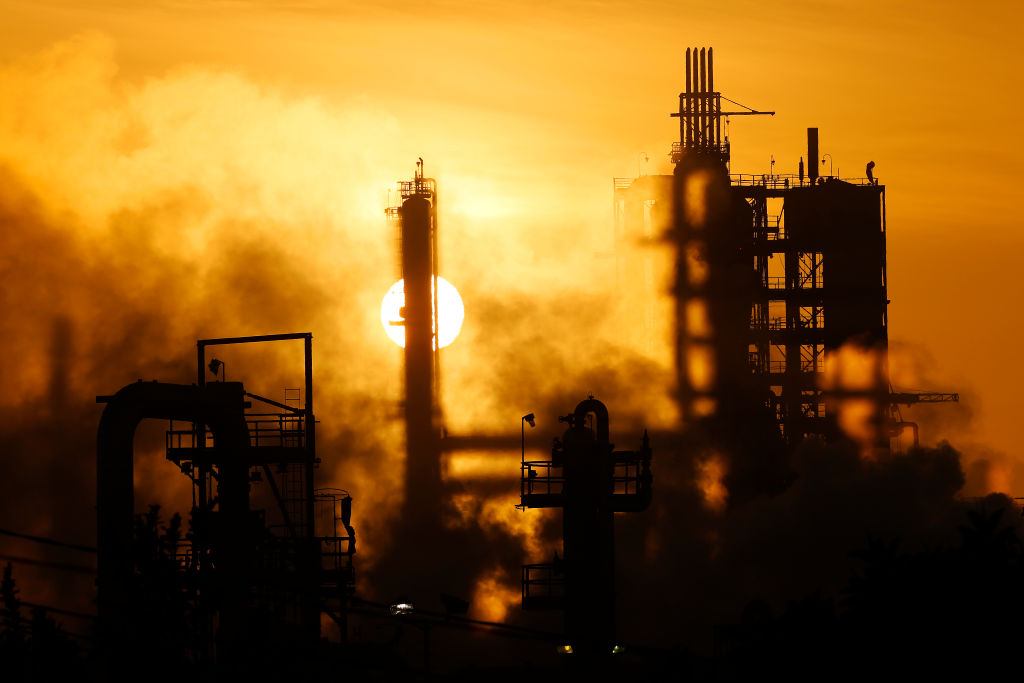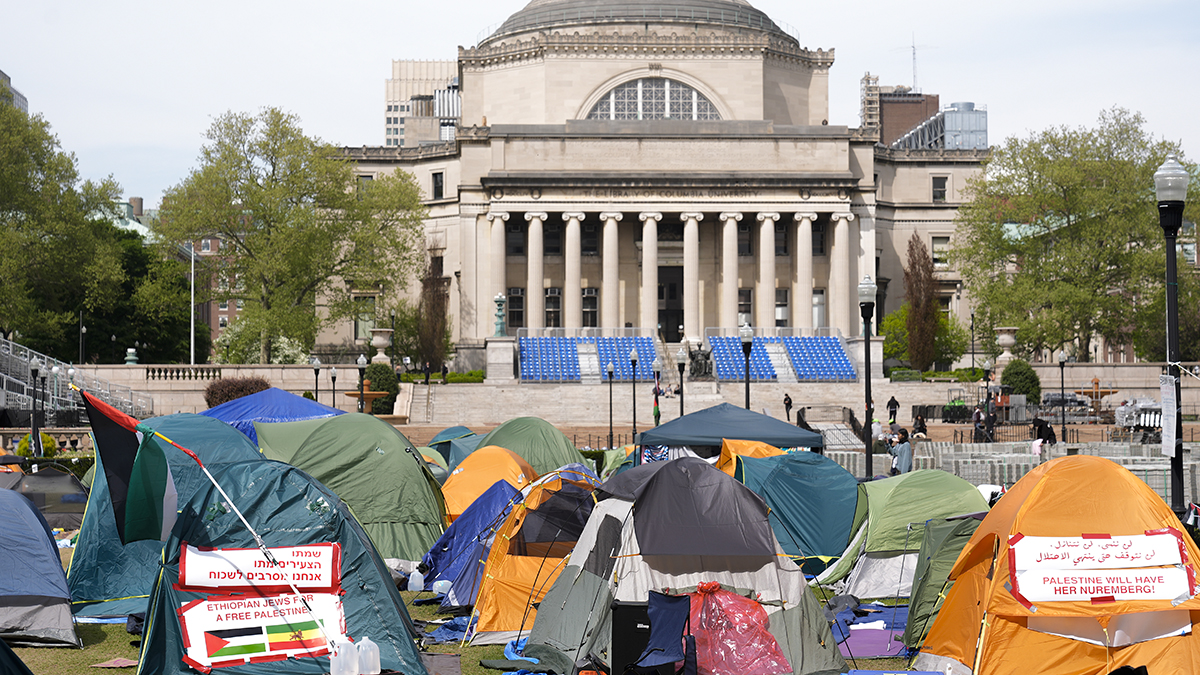As a showdown looms over humanitarian aid destined for Venezuela, President Nicolas Maduro closed off his country's border with Brazil, vowing on Thursday to block the emergency food and medicine that has rallied his opponents and which he claims is part of a U.S.-led coup plot.
Amid the mounting tensions, opposition leader Juan Guaido set off in a cross-country caravan for the border with Colombia, where much of the U.S.-supplied aid is warehoused and where he has called on thousands of ordinary Venezuelans to assemble Saturday to help bring it across.
A group of lawmakers also headed to the Colombian border were stopped a few hours outside Caracas by national guardsmen in anti-riot gear who positioned a trailer truck in front of a tunnel, blocking the highway westward. A shouting match and scuffle ensued, with the guardsmen firing tear gas before the lawmakers eventually forced their way through and resumed their journey.
Meanwhile, Hugo Chavez's longtime spy chief became the latest and perhaps most-influential military figure to declare his loyalty to Guaido.
Maduro's decision to close the vast, jungle border with Brazil came a day after he blocked air and sea travel between Venezuela and the nearby Dutch Caribbean island of Curacao, where the first cargo of relief supplies arrived Thursday, sent by the large Venezuelan exile community in Miami.
Maduro said he was also weighing whether to shut the border with Colombia, where the bulk of aid is being stockpiled and exiled leaders have been gathering ahead of a fundraising concert Friday organized by British entrepreneur Richard Branson, in which several major Latin American pop artists will perform.
"They are committing an international crime because they are endorsing a military invasion," Maduro said of the U.S., speaking Thursday on state TV flanked by his top military commanders. "They wanted to generate a great national commotion, but they didn't achieve it."
U.S. & World
The day's top national and international news.
Saturday's aid showdown comes exactly a month after Guaido declared himself interim president in a mass rally, immediately drawing the support of the U.S. and 50 other countries.
But while he's managed to bring hope to Venezuelans crushed by years of recession, food shortages and hyperinflation, he's so far been unable to win over the military, which has shown little sign of abandoning Maduro.
In declaring his support for Guaido on Thursday, retired Maj. Gen. Hugo Carvajal said Venezuela's military was in as ramshackle a state as the nation as a whole.
Reading prepared remarks in a video on social media, Carvajal, who spent a decade running Chavez's military intelligence agency before stepping down in 2012, urged his former comrades to redeem themselves and abandon their support for Maduro.
"You carry on your shoulders the weight of an army that gave liberty to people in more than five countries," he said, referring to the Venezuelan-born Simon Bolivar's role as the father of South American independence from Spain.
"We can't allow an army, in the hands of a few generals subjugated to Cuban instructions, to become the biggest collaborator of a dictatorial government that has plagued people with misery," he added.
It's not clear what impact, if any, Carvajal's statement will have on the troops. Arrested briefly on a U.S. drug warrant in 2014 while serving as consul general in Aruba, Carvajal broke with the government in 2017 over Maduro's plans to create a constitutional assembly to gut what was left of the opposition-controlled congress.
For now the military continues to obey Maduro's orders even as Guaido tries to bring international attention to the country's hardships.
In recent days, residents of the remote town of Santa Elena de Uairen have reported seeing convoys of military vehicles and troops amassing along Venezuela's southern border with Brazil. Residents of the town, including members of a militant indigenous tribe, are vowing to somehow cross into Brazil to fetch the aid, although it's not clear how they will be able to surmount the military blockade.
"There's a lot of uncertainty because people don't know what's going to happen," said opposition lawmaker Americo de Grazia, who is on the ground in the state.
There were also troop deployments at the opposite end of the country, where workers were busily assembling stages for Branson's "Venezuela Aid Live" fundraiser and a rival concert being put on by the government Friday and Saturday on the Venezuelan side of the border.
Near the Tienditas International Bridge, a worker for the Venezuelan state-owned electricity company said that he was worried that the government's "Hands Off Venezuela" concert would not be ready on time.
"We lack the resources," the man complained, speaking on condition of anonymity because he was not allowed to publicly criticize the project. About a dozen organizers sat idly in white plastic chairs chatting and listening to Venezuelan folk music on small speakers.
A much-larger stage being built on the outskirts of the Colombian border city of Cucuta is expected to host artists including Spain's Alejandro Sanz, Argentina's Diego Torres and Colombia's Carlos Vives.
Luis Vicente Leon, a Caracas-based pollster, downplayed expectations for any immediate shakeup as a result of the weekend's confrontation.
But he said the Trump administration's surprisingly strong commitment to forcing out Maduro, even if it means inflicting more economic pain on Venezuelans through amped up financial sanctions, means the status quo can't hold.
"In 20 years of Chavismo the chances of a change in government taking place have never been so high," he told a group of business leaders in Caracas, referring to Chavez's socialist revolution.



